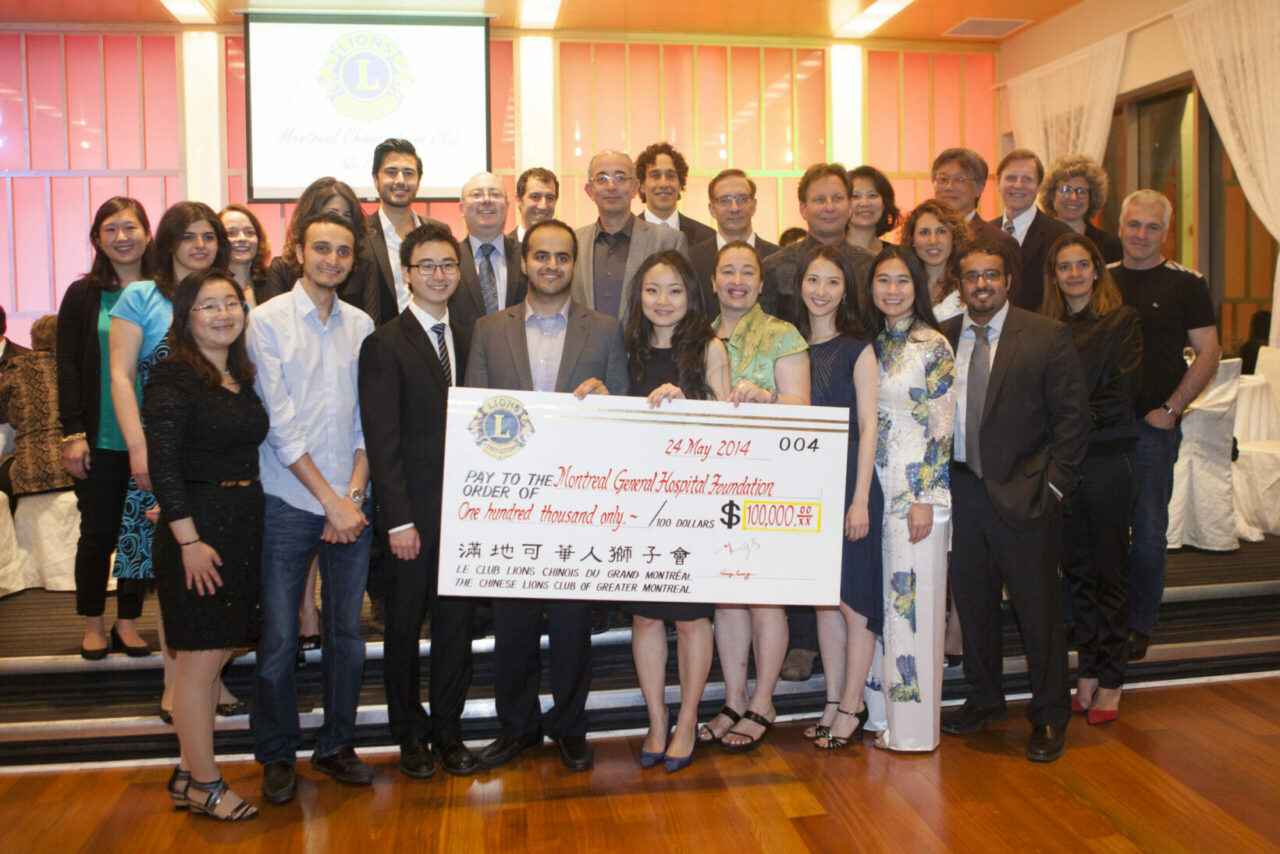By Elizabeth McPhedran, MUHC

Last Saturday evening, on May 24th, 2014, over 200 invitees attended a dinner hosted by the Chinese Lions Club of Greater Montreal to celebrate a recent donation of $200,000, destined for the MUHC and McGill Departments of Ophthalmology to purchase the latest technology for diagnosing and treating blindness.
Taking place at Le Cristal Chinois restaurant in Chinatown, this event gathered Lions Club members, MUHC and McGill Ophthalmology staff, and generous donors and volunteers alike for an evening of traditional Chinese food and entertainment while paying tribute to the notable steps taken to raise these funds.
The donation is the result of a collective effort made by many individuals over the past few years, with $100,000 coming from funds raised by the Chinese and Quebec Lions Clubs, as well as a grant awarded from their governing body, the Lions Club International. The Montreal General Hospital Foundation has agreed to match this initial donation, bringing the total contribution to a generous $200,000.
Upon accepting the cheque from Chinese Lions Club president, Mr. Victor Wang, Dr. Leonard Levin, chairman of McGill and MUHC Ophthalmology, stressed the importance of this contribution and the tremendous impact it will have on both patients and the department. “The funds will be allocated to purchasing state-of-the-art equipment that will revolutionize the way we diagnose ocular diseases and operate on patients,” he explained.
The Casia Tomey Anterior segment OCT, which counts as one of the first available in Canada, will take special high resolution pictures optimal for furthering our understanding and diagnosis of glaucoma and corneal diseases. The endoscope camera will allow surgeons to see structures inside of the eye that otherwise would not be possible, facilitating the development of cutting edge surgical techniques to treat glaucoma. With the new micropulse laser, surgeons will be able to maximize the effect of retinal and glaucoma disease treatment while minimizing damage to the actual structure of the eye.
While these latest additions to the MUHC will ensure better quality and less invasive eye care, not to mention build avenues for future clinical research projects, they also play an

important role in furthering education. “These are cutting-edge tools that will be used for instructing the next generation of ophthalmologists, giving trainees at McGill a more hands-on opportunity to learn how to treat the most complex of blinding diseases,” said Dr. Alice Yang Zhang, assistant chief resident of the McGill Department of Ophthalmology.
The evening’s events also marked the opportunity for the Lions Club to screen a video showcasing the many fundraisers and initiatives they have recently spearheaded, including the annual Free Eye Clinic Day run by Dr. John Chen and volunteers from the departments of Ophthalmology at McGill and the MUHC. This public initiative, expected to hold its next clinic in November 2014, sees upwards of one hundred at-risk individuals in a single day, most of whom have previously never seen an ophthalmologist.
The McGill Department of Ophthalmology treats over 100,000 patients annually and conducts over 15,000 eye surgeries across six hospitals in Montreal, including four MUHC hospitals (Royal Victoria Hospital, Montreal General Hospital, Montreal Children’s Hospital, and Lachine Hospital), the Jewish General Hospital, and St. Mary’s Hospital.
May 28, 2014
